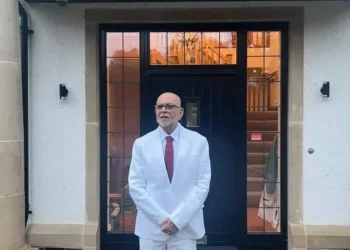Last year in May, Parliament approved the Excise Duty (Amendment) Act which among others included an Over The Top (OTT) tax that imposed a Shs200 daily levy on social media users.
The law that took effect on July 1, 2018 was first hinted on by President Yoweri Museveni in his March 12, 2018 letter to Finance Minister Matia Kasaija as one of the ways of increasing government revenue and reducing what he called ‘lugambo’ (gossip) on social media.
The Ministry of Finance would later table a proposal before Parliament to impose the tax on telecommunications service operators providing data for accessing OTT services. It suggested that “Whereas the telephone users are paying taxes through voice calls and texts, the social media users through Facebook, Twitter, WhatsApp, Skype among others, are using the same services, yet they aren’t paying taxes.”
In their report, they termed the current trend as unfair and inequitable for consumers who buy airtime and use it to make voice calls compared to those who buy internet data and make voice calls.
A few days after taking effect, a group of Ugandan activists petitioned the Constitutional Court to rule that the tax was unconstitutional and should stop the government from levying it.
The group that had sued the Attorney General, Uganda Communications (UCC) and the tax regulatory body Uganda Revenue Authority (URA) urged that OTT tax denied many Ugandans who cannot afford it access to information through social media and it infringed on the ‘economic rights’.
They also said the tax limits access to social media and in turn violated the rights to freedom of expression, public participation, political mobilization, peaceful assembly and unarmed demonstration.
On July 9, Makerere University students through their guild also petitioned the Speaker of Parliament Rebecca Alitwala Kadaga over the same issue.
They said the new social media tax had adversely affected their convenience to share educational materials and opportunities.
“This policy seems to have double or even multiple taxation on it. For instance, when we buy airtime, we are charged 15 per cent indirect tax and then shs200 to access social media,” said Mark Owiny, Justice Minister at the Makerere University Guild.
Owiny noted that according to the Act, excise duty on OTT services was supposed to be levied on services that do not include educational services, of which some social media applications sufficed for academic platforms.
He added that the tax was being levied wrongly as per the Amended Excise Duty Act saying, “The Excise Duty (Amendment) Act states that the tax is to be paid by the service provider of the particular commodity, not the consumer of the commodity.”
Nonetheless, Parliament’s Director of Communications and Public Affairs Chris Obore defended the law saying that as more Ugandans use social media, it should become a vital source of revenue for the country.
“The government is trying not to over-rely on donor funding. It is just a redistributive tax as the government is out to look for money from those who have to finance projects,” he said.
Adding, “The tax is very small. Shs200 in Uganda to a dollar is very negligible. People in Uganda will not find it too expensive.”
The tax payment is done electronically through Mobile Money services.
Meanwhile, since its introduction, a good number of Ugandans have embarked on using Virtue Private Networks (VPNs) as the only solution to bypass the daily ill conceived tax.
VPN software sets up an encrypted tunnel which routes all the internet traffic to and from your device via an intermediary server.
This compels host websites and apps into thinking you’re accessing the web from a location outside your current city/town. In this scenario, it’s almost impossible for hackers or government agencies to snoop on your online behavior.
While government expects to collect between Shs400 billion and Shs1.5 trillion annually from the social media users, the presumption may be far reached due to VPN usage.
In the latest UCC quarterly report, the number of internet subscribers who paid the social media tax reduced from 8.04 million in July 2018 to 6.84 million people and the amount (tax) collected equally reduced from Shs5.6 billion in July to Shs 3.9 billion at the end of September.
The number of internet subscribers also reduced from 16 million to 13.5 million.
“In the last three months of the quarter under review, both the number of OTT taxpayers and the figure for the OTT revenues were in the declining trend,” the report partly stated.
A recent research finding conducted by Sauti Za Wananchi, revealed that the effects of the social media tax have proved to be far heavier on the poor than the rich. The effective tax rate on the poor is between 62 per cent and 100 per cent, while on the rich it’s not more than 30 per cent.
Also noting, “The effect of the tax is mostly felt by women and the youth.”
Renowned Social Media Influencer Faisal Ssesanga alias Pyepar says the tax obstructively affected his job as a digital marketer since his viewership numbers have considerably gone down.
“When you have no numbers, it means you have no business,” he says.
Ssesanga is a Telecom Engineer and probably one of Uganda’s top digital influencers on Twitter, Facebook, Instagram and Snapchat.
Since its introduction, Ssesanga discloses that he has never paid for the tax.
“I am not for the tax because I wasn’t for it from day one. Now I am just used to VPN, it’s kind of a sixth sense to me and with it am able to access and share information on all my social media platforms without being restricted,” he notes.

“In short I am still accessing social media like I used to do, am not controlled,” Ssesanga adds.
As an influencer, he has worked for Uganda’s second largest telecom company Airtel and National Social Security Fund (NSSF) among others.
On the other hand, Kevin Tumwesigye, 44 a business man working in Kibuye Market says ever since the tax was introduced, he rarely uses Facebook or Whatsapp. He thinks paying for the daily Shs200 is wastage of money more so when he is not well versed with the usage of these social media platforms.
“I joined Facebook and Whatsapp in 2017. I was helped by my 19-year-old son to sign me up. I didn’t join social media to have fun but because I had bought a phone which had the services so I just decided to follow the trend.”

“Since last year to date I have paid social media tax three to four times. Literally it’s as if am no longer on social media,”
On the issue of VPN, Tumwesigye says, “I always hear people talking about VPN but I don’t know how to use it so it remains useless to me,”
Sabilah Lukyamuzi, 21 a resident of Lwensambya A, Lwengo District says life on social media has never been the same since the introduction of OTT tax.
Lukyamuzi, a casual worker asserts that he has been on Facebook since 2016 and before the introduction of the tax, he used to access the social media platform at least four times a week.
“With no social media tax, and availability of Airtime scratch cards in the nearby small shops in my village, I used to buy airtime for Shs500 and access all the information I wanted on Facebook but now it’s no longer possible since the scratch cards were also banned,” he notes.
He further says Mobile Money services are far away from where he lives which makes it hard for him to buy data bundles and pay tax as well.

“If I want to access Mobile Money services I have to walk miles. Most times I fail to buy data due to the long distance to the outlets,”
Lukyamuzi who also joined Whatsapp recently says he installed VPN on his phone to bypass the social media tax but sporadically he cannot use it because of no data bundles.
“Truth be told, I no longer use social media like I used to because of the accessibility difficulties I face ever since the introduction of the tax and ban on airtime scratch cards,” he complains.
This article has been supported by Twaweza, a civil society organization working to enable children to learn, citizens to exercise agency and governments to be more open and responsive in Tanzania, Kenya and Uganda.
Do you have a story in your community or an opinion to share with us: Email us at editorial@watchdoguganda.com











